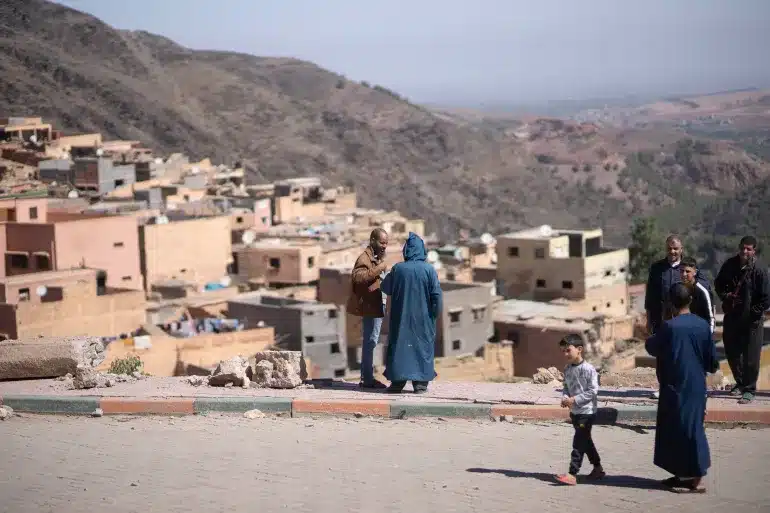Morocco, a pivotal nation in North Africa, was hit by a devastating earthquake on Friday night. The aftermath has resulted in the loss of over 2,000 lives, with thousands more injured. The impact of the earthquake has been felt deeply, especially around the nation’s epicentre near the bustling city of Marrakech.
When and Where Did the Quake Strike?
On Friday, at precisely 11:11 p.m. local time (6.11 p.m ET), Morocco was shaken by the quake. Its epicentre was identified in the High Atlas mountain range, approximately 72 kilometres southwest of Marrakech, a city with a population nearing a million.
Shockwaves from the earthquake rippled far and wide, with reports of tremors being felt as far north as Casablanca.
How Strong Was the Quake?
Classified as “strong”, the earthquake had a magnitude of 6.8. Its shallow depth compounded its destructive nature. Such earthquakes are rare in this region, with the US Geological Survey noting that the area has experienced only nine quakes of magnitude 5 or higher since 1900. This recent earthquake has been the deadliest in Morocco since the catastrophic 1960 event, which claimed over 12,000 lives.
Areas Most Affected
According to the World Health Organisation (WHO), the quake has affected over 300,000 individuals in Marrakech and its neighbouring areas. Notably, some of the most significant damage occurred in areas proximal to the Atlas Mountains. Towns in the mountain foothills, like Asni, have reported severe destruction, with many homes heavily damaged or destroyed. The provinces of Al Haouz and the city of Taroudant have also been gravely impacted.
On-The-Ground Reports
Emergency services have been actively deployed to the affected areas, although damaged roads and debris have hindered accessibility. In remote villages within the mountain foothills, reaching victims has proven particularly challenging.
Heartbreaking stories emerge from survivors. Mohammed, a resident of Ouirgane, painfully recounted how he lost four family members. For many, like Mohammed, homes have been lost, and lives irrevocably altered.
Many Marrakech residents chose to stay outdoors, fearing aftershocks. The Moroccan government has been proactive, mobilising resources to manage the disaster and urging its citizens to remain calm.
In a gesture of solidarity, King Mohammed VI has established a relief commission to provide aid to those affected by the earthquake.
International Response
The global community has been quick to respond to the crisis. Numerous leaders worldwide have extended their condolences and have pledged support.
Turkey has offered to send personnel and tents. Notably, Algeria has offered to reopen its airspace, closed since 2021 due to diplomatic tensions, to facilitate humanitarian efforts.
Leading global figures, including US President Joe Biden, French President Emmanuel Macron, Indian Prime Minister Narendra Modi, Ukrainian President Volodymyr Zelensky, and Russian President Vladimir Putin, have sent their condolences.
Furthermore, international organisations such as the International Red Cross have voiced concerns about the long-term recovery process. Hossam Elsharkawi, the Red Cross’s Middle East and North Africa director, mentioned that recovery and reconstruction might span years. Spain has also pledged support, sending specialist workers to assist with the ongoing rescue operations.
The UN Office for the Coordination of Humanitarian Affairs (OCHA) noted that they are closely monitoring the situation and are poised to offer any necessary support.
Image Credit: Mosa’ab Elshamy/AP



















